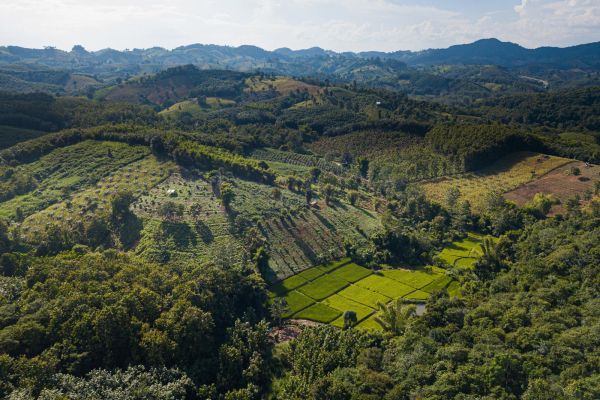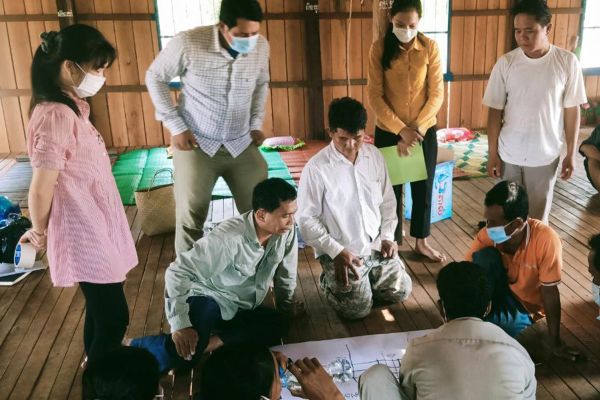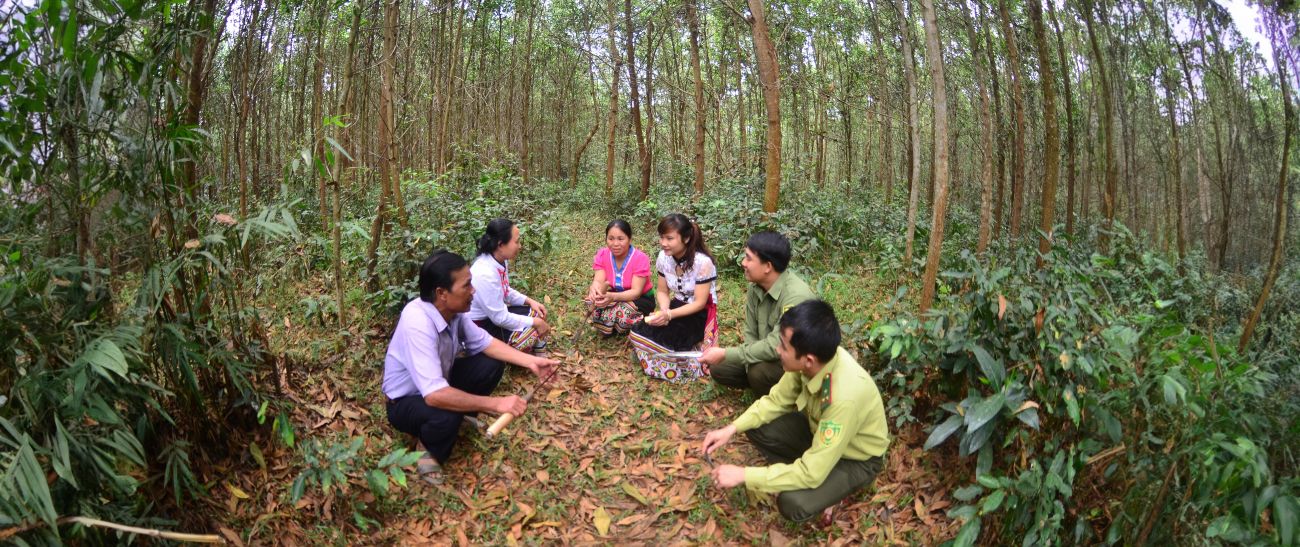
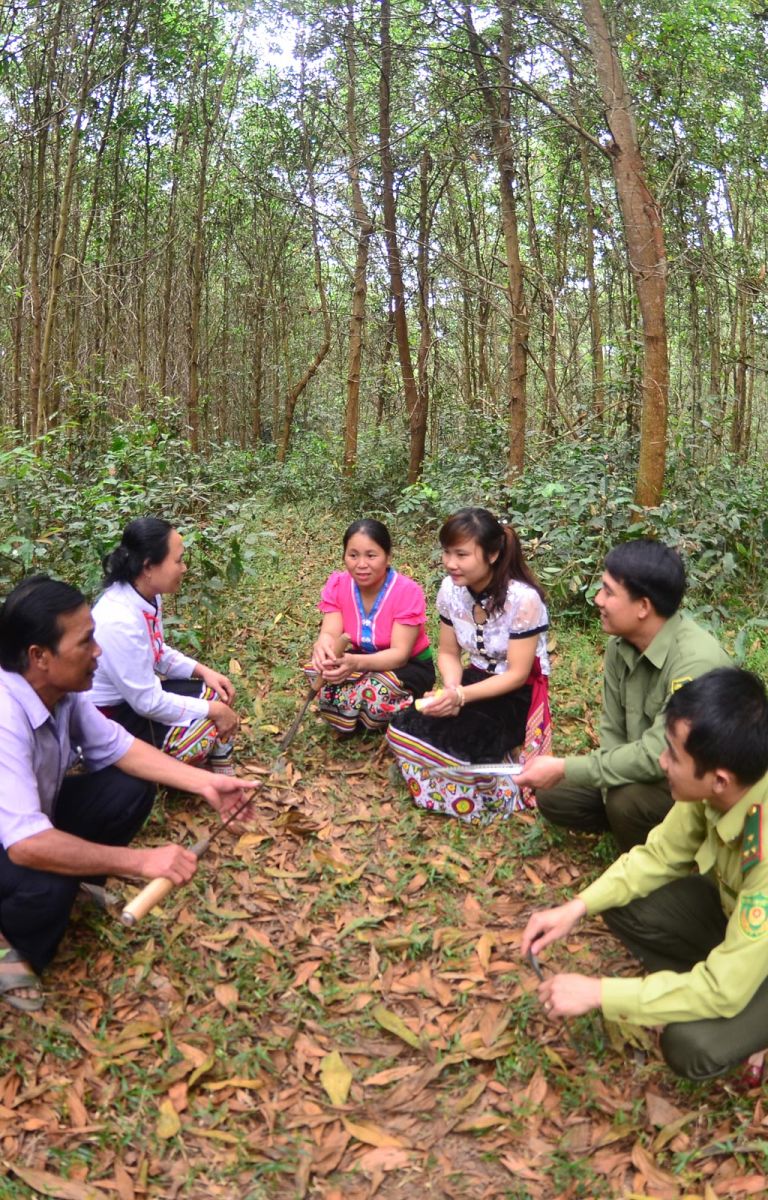
The minority ethnic Karen community of Huay I Khang Village in Thailand’s Chiang Mai Province uses a customary system of land tenure. It is based on collective rights, traditional knowledge and territorial management practices. Women traditionally enjoy strong rights to access, use and manage agricultural and forest land.
But the community lacks formal recognition of their collective rights. National parks and conservation areas overlap with ancestral land, eroding the community’s access to that land and threatening food sovereignty.
“The forest officials come and tell us what to do based on their own ideas, but their ideas are in conflict with our way of life,” says Chi No, one of the women in the community. “We know what to do and how to live.”
The situation she describes is detailed in one of two reports relating to customary tenure that RECOFTC produced in 2022 through the Mekong Region Land Governance (MRLG) project.
Recognizing customary tenure
The residents of Huay I Khang Village are among about two billion people worldwide who live under a customary system of tenure and rights governing the use of forests, land and other natural resources. These systems are crucial to people’s livelihoods, food security and culture, as well as to forest protection, biodiversity conservation and climate change mitigation.
Customary tenure has long been insecure, and in many places it is under growing pressure. But it is also increasingly recognized through a variety of mechanisms, both formal and informal.
The first of RECOFTC’s reports for the MRLG project focuses on the recognition of customary tenure in forest landscapes in Cambodia, Lao People’s Democratic Republic, Myanmar and Viet Nam. It identifies three main pathways for recognizing customary tenure: self-recognition by communities; joint recognition by communities and others; and formal recognition in legal frameworks. Ten case studies illustrate different approaches, often a mix of formal and informal mechanisms.
The report introduces a conceptual framework for assessing these mechanisms in relation to rights, livelihoods, governance, gender equity and social inclusion, customary and traditional practices and dispute resolution. It assesses the extent to which legal frameworks recognize or restrict customary tenure rights and identifies gaps and inconsistencies in legal frameworks. It also recommends ways of improving the recognition of customary tenure in each country and at the regional level.
“Respecting the rights of forest communities by ending the gap between the legal recognition and the protection of customary land in practice can help secure the way of life for local people,” says Nathalie Faure, senior program officer at RECOFTC, and lead author of the report. “It can also help mitigate climate change, protect ecosystems and accelerate progress towards inclusive and sustainable development.”
“The research supported by MRLG aligns with RECOFTC’s wider work on inclusive forest governance,” says Faure. “This includes our engagement with governments and decision-makers at the level of the Association of Southeast Asian Nations (ASEAN). We are supporting efforts to strengthen legal and policy frameworks to enhance communities’ rights across the region. This is key to ensuring that communities can sustainably manage and benefit equitably from local forest resources.”
Focusing on women’s experiences
The second MRLG-supported report focuses on gender, tenure and customary practices in forest landscapes. The report and its associated informational briefs, were based on 10 studies carried out in 18 sites in Cambodia, Indonesia, Lao PDR, Myanmar, Nepal, Thailand and Viet Nam.
Each study documented the legal frameworks and customary practices that affect indigenous women’s rights to access and manage forest resources. As well as producing this knowledge, RECOFTC also built the capacities of researchers in the seven countries to conduct the studies.
The research provided unique perspectives into customary and statutory tenure and how the two models interact. It showed how traditional gender roles influence women’s customary tenure rights in ways that are common to several of the countries. The report makes recommendations in six areas: education and literacy; training; empowerment; community forest management; legal reforms; and further research.
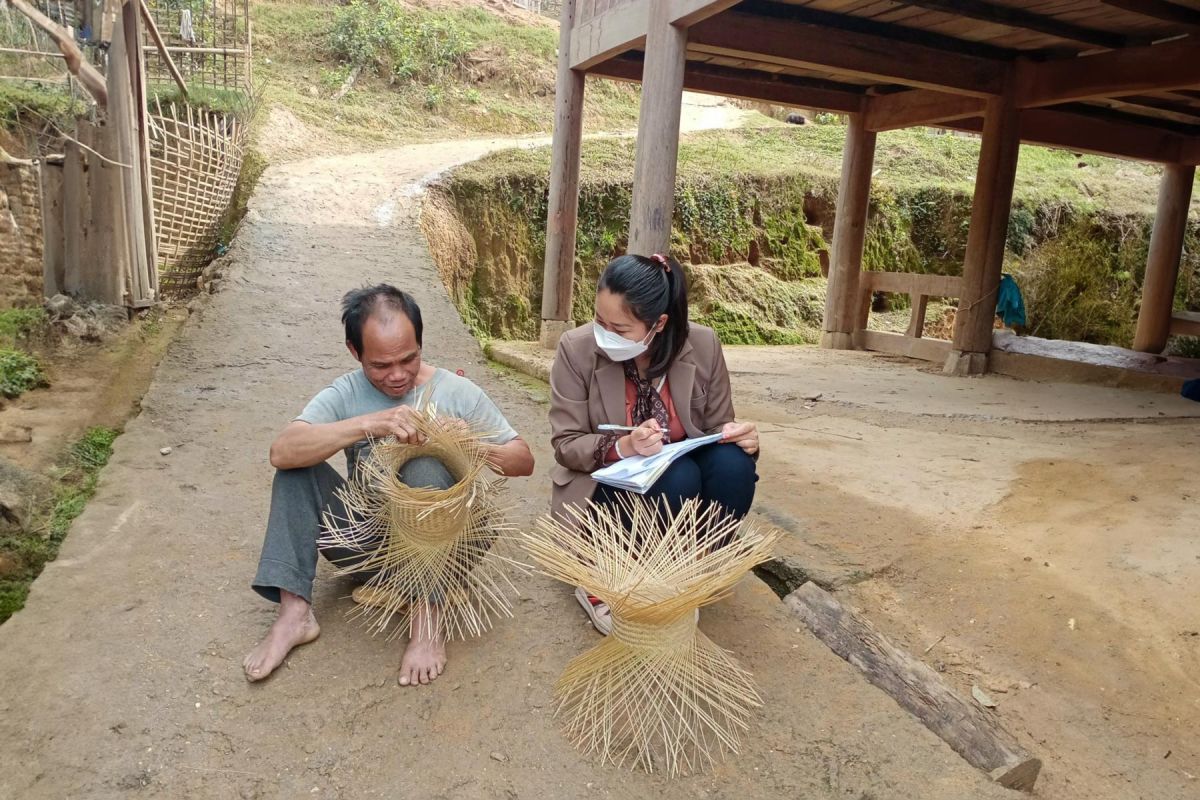
“The studies showed that the factors influencing how women participate in forest governance and contribute to their families’ livelihoods vary among indigenous groups,” says Ei Ei Htwe, former senior program officer for gender equality and social inclusion at RECOFTC who oversaw the research. “This underlines the fact that each country’s approach to acceptance and recognition of customary tenure rights must be nuanced and flexible.”

